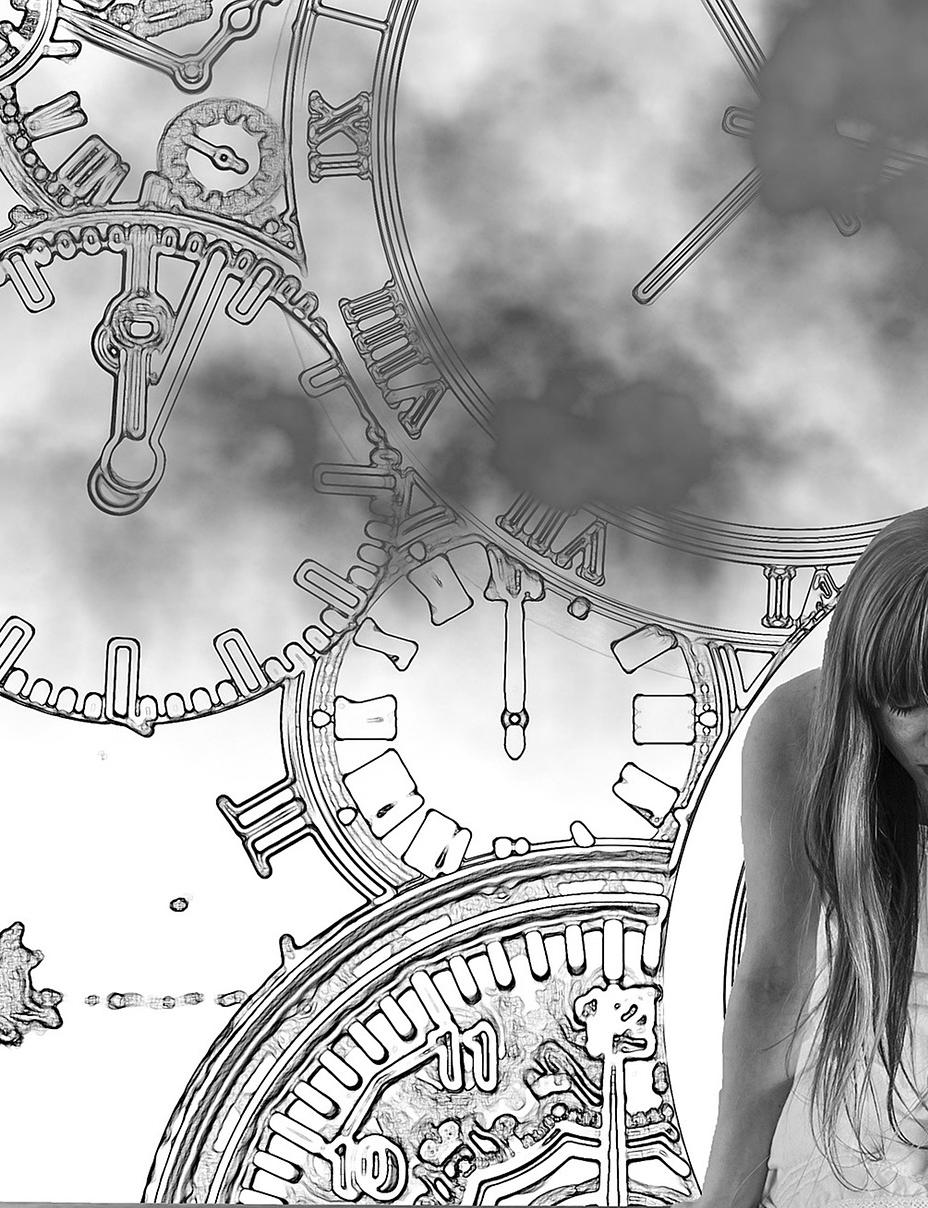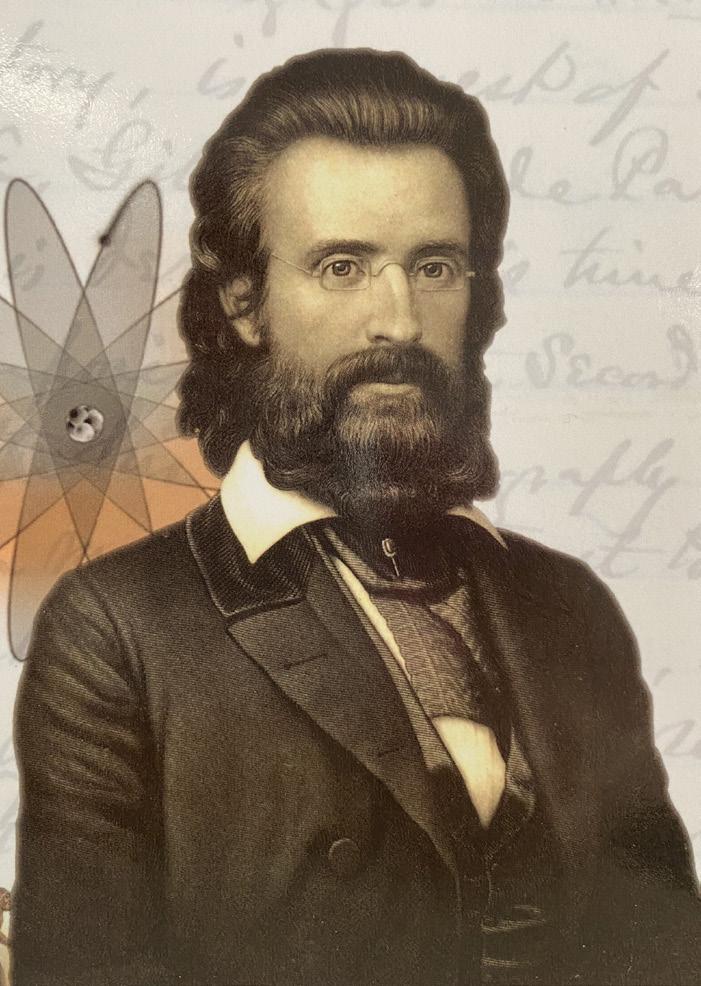
4 minute read
Reflections
The Illusion of Time
By Jane Offer
Throughout our life, we seem governed by time constraints. We wear watches and have clocks in our houses, measuring the passing of time. In fact, the world is governed by precise timelines that organise our lives into order. We can plot the progress of time measurement devices throughout history and we can see how our life became so much more regimented.
Before the 17th century, telling time was quite random: sundials were used, which made time local, relying on the position of the sun in a given geographical point. Longcase clocks only had one hand showing the hour change but no other division of time. In times where people were engaged in agriculture more than manufacturing, they got up with the sun and used it to govern their daily habits. Once the Industrial Revolution occurred, people began to organise themselves much more by time and timekeeping devices became far more accurate.

Today we believe we have too little time, telling ourselves that we are busy with no time for this or that. However, if we had more time, due to our nature, we would simply fill it with more of the same. Albert Einstein put forward the idea that time is relative, that the perceived length of time of an event is relative to its content.
“When you sit with a nice girl for two hours, you think it’s only a minute, but when you sit on a hot stove for a minute, you think it’s two hours.”
We’ve all experienced the feeling of an event dragging on, or being over in a moment, dependant on our level of enjoyment or interest.
Modern-day quantum science is proving that time is an illusion created by our human mind to make sense of the events that occur around us. Scientists and Spiritual; teachers such as Ekhart Tolle, tell us that all that exists is Now, that the
past is gone and cannot be altered and the future is made up of infinite possibilities. This was once explained to me in relation to a video adventure game.
The characters and potentials are created and stored in the game based on past experience. The multiple outcomes are also programmed into the game just waiting for us to interact. The path we choose designates the result – the future.
“Also, the people around you feel heard and are therefore less demanding of your time…” The more I read about fractal time, the more confused I get and really, am I bothered by it? What does intrigue me though is why one day seems to last a long time and others just fly by. What do I do differently that creates this illusion? All I know is that time is not what it seems.
I have just returned from a long-haul flight and I lived one day twice going out and one day simply disappeared coming back. Someone decided that time zones were the answer to travel and they altered time!
So how can we stretch time and create less stress? We can stretch timebased on our perception of importance. When we feel we absolutely must do something now, ask the question “Will it be just as important an hour from now?” If not, then let it go.

Focus on what you are doing, giving it 100 per cent of your attention. If you are interrupted, detach from the task in hand entirely and turn your full attention to the interruption. When that is dealt with, fully focus again on the original task. This practice takes time to perfect, but ultimately you will find that each job is completed efficiently, your stress levels are reduced and you achieve much more in one day than you thought possible. Also, the people around you feel heard and are therefore less demanding of your time.
Explore your priorities. When you focus on what is important to you, it makes your soul sing and every task flows smoothly. We may have to do something we would prefer not to for a person we love and, in this case, if we make it a personal choice, we release any resentment. This makes the task a gift rather than an expectation. We must acknowledge that we create the situations we find ourselves in. We want to be the friend or the model employee, or we feel we need to ‘do’ to be accepted and loved. However, we need to learn to say NO conclusively. To do this, it is essential not to use the word ‘No’, as it creates feelings of rejection and hurt.
When someone demands from you repeatedly, try this out. They ask and you reply with confidence, along the lines of, “Of course I would love to help you, I just wish I had known about this yesterday. I have made an appointment that I really cannot break, but I am available on Thursday so we could catch up for coffee.”
They will be so thrilled with the new arrangement that they will forget about their original request. The first time you do it, you will be nervous, but when you see how effectively it works, you will feel uplifted.
You have nothing to lose in trying these out, only time to gain.

Jane Offer










